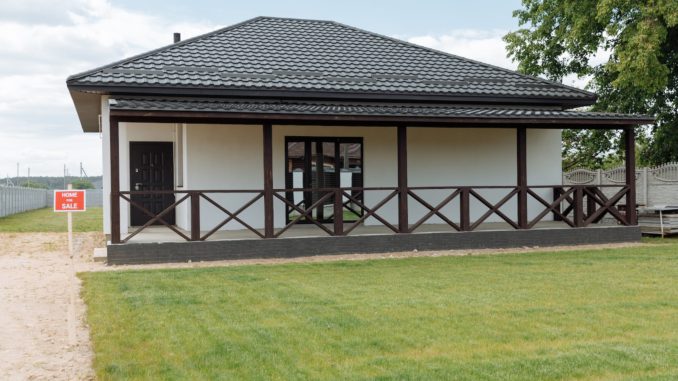
As you approach your golden years, finding the right retirement home is crucial to ensuring a comfortable and fulfilling lifestyle. With numerous options available, taking the time to thoroughly consider various factors can lead to a more detailed assessment and, ultimately, a better choice. Here is an in-depth exploration of the key aspects to contemplate when selecting the ideal retirement home:
Location: Beyond the Basics
The location of your retirement home is not just about proximity to family and friends, medical facilities, shopping centers, and community services. A more detailed analysis involves considering the climate of the area and its impact on your health, preferences, and hobbies. For instance, if you enjoy outdoor activities, a retirement home situated in a region with access to scenic parks, hiking trails, or golf courses might be preferable. Moreover, evaluating the proximity to cultural and recreational amenities, such as theaters, museums, and libraries, can enrich your retirement experience.
Cost: Understanding the Financial Aspects
While the basic cost of a retirement home is vital, a more comprehensive approach is essential to manage your financial well-being effectively. Inquire about the breakdown of monthly fees to understand precisely what is covered and what additional expenses you may incur for amenities, meals, and care services. Delve into the financial stability of the retirement community, its history of fee increases, and any refund policies if you decide to move or face unforeseen circumstances. Engaging a financial advisor can help you make an informed decision tailored to your specific financial situation.
Amenities: Assessing the Luxuries
Beyond the usual facilities, exploring the available amenities in greater detail can make all the difference in your comfort and satisfaction. Investigate the quality and maintenance of fitness centers, swimming pools, and other recreational areas. Assess transportation services thoroughly, considering not only availability but also the destinations covered and whether they include medical appointments and shopping trips. Housekeeping services should be evaluated based on the frequency of cleaning, laundry assistance, and attention to individual needs.
Staff: Ensuring Excellent Care
The staff at a retirement home plays a crucial role in providing a nurturing and supportive environment. Inquire about the qualifications, experience, and training of the staff, including medical personnel, caregivers, and administrative employees. A detailed evaluation of staff-to-resident ratios can give insight into the level of personalized attention you can expect. Engage with current residents to gather their perspectives on staff responsiveness, empathy, and the overall culture within the community.
Medical Care: Prioritizing Health and Safety
In assessing the level of medical care provided, consider more than just the presence of on-site medical staff. Inquire about the qualifications and specialties of healthcare professionals and whether there are partnerships with nearby medical facilities. An emergency response system with quick access to medical assistance is crucial for your peace of mind. Furthermore, evaluating the availability and maintenance of medical equipment is essential to handle potential health challenges that may arise.
Social Activities: Fostering an Engaging Lifestyle
Social interactions and engaging activities are vital components of a fulfilling retirement. Going beyond the quantity of social activities, explore the diversity and inclusivity of programs available. Inquire about the process of organizing events and whether residents have the opportunity to suggest and initiate activities. Assess the frequency of outings, classes, and events to ensure they align with your interests and passions.
Safety and Security: Peace of Mind Matters
A safe and secure environment is paramount in any retirement home. Beyond checking for smoke detectors and security cameras, inquire about the training of staff in emergency procedures. Assess the effectiveness of emergency response systems and protocols. Additionally, examine the security measures in place to prevent unauthorized access and protect residents’ well-being.
Quality of Life: Immersing Yourself in the Community
To gain a comprehensive understanding of the quality of life at a retirement home, visit the community and engage with current residents. Ask about their experiences, satisfaction levels, and any challenges they have encountered. Reading online reviews can provide valuable insights, but firsthand experiences are invaluable in making an informed decision.
Pet Policy: Furry Friends Welcome
If you are a pet owner, the retirement home’s pet policy becomes a significant consideration. Ensure that the community allows pets and inquire about any restrictions regarding the size, breed, or number of pets allowed. Additionally, assess the available pet amenities and services to ensure your furry companion enjoys a safe and comfortable life within the community.
Personal Preferences: Tailoring Your Retirement Experience
Finally, take the time to reflect on your personal preferences to find a retirement home that aligns with your vision of a dream retirement. Consider the type of accommodation available, such as apartments, cottages, or shared living spaces. Assess the size and layout of residences to ensure they meet your needs and preferences. Proximity to local attractions and facilities, as well as any special features or services offered, should also be factored into your decision.
In conclusion, finding the perfect retirement home involves a thorough and detailed assessment of various factors. By considering location, cost, amenities, staff, medical care, social activities, safety, and personal preferences, you can make an informed choice that promises a fulfilling and enjoyable retirement lifestyle.

Leave a Reply